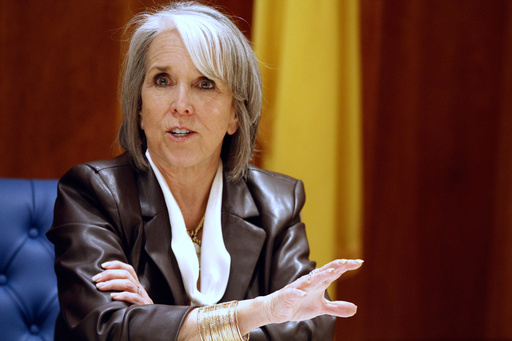In a significant development for education reform in New Mexico, a state district court judge has ruled that the state must develop a remedial plan to enhance K-12 education, particularly focusing on Native American students and those from low-income backgrounds. This decision follows a landmark ruling in 2018 that identified substantial shortfalls in the state’s efforts to provide adequate educational opportunities, despite a surge in education funding.
On Tuesday, Judge Matthew Wilson emphasized the necessity for the creation of a comprehensive plan to address the ongoing breach of constitutional rights affecting at-risk students. These include students who are learning English as a second language and those with disabilities. Wilson stated that a court-mandated plan could offer invaluable guidance to New Mexico’s legislature and executive branch, especially in making budgetary choices amid political and economic uncertainties.
Historically, New Mexico has faced challenges related to poor educational outcomes, ranking low nationally. The state has long struggled with subpar test scores and graduation rates, issues that existed even before the disruptions caused by the COVID-19 pandemic. In recent years, the state has been allocating significant public resources toward initiatives aimed at improving school attendance, expanding access to broadband internet, and strengthening school staff, amongst other strategies. This effort comes amid increased state revenue from the oil and natural gas sectors.
The lawsuit, known as the Yazzie-Martinez case, was filed over a decade ago on behalf of students and school districts associated with Native American and Hispanic communities. It brought to light systemic deficiencies within New Mexico’s educational framework. The administration of Democratic Governor Michelle Lujan Grisham has conceded that improvements are necessary, while also noting a noteworthy 62% rise in annual K-12 funding since 2016, reaching $4.2 billion in 2024. Furthermore, the administration has implemented multiple new initiatives aimed at supporting at-risk students.
Janelle Garcia, spokesperson for the Public Education Department, expressed the department’s receptiveness to the court’s ruling, viewing it as an opportunity to spearhead the development of a plan designed to deliver an exceptional education to all students in New Mexico. The department aims for this initiative to ultimately resolve the Martinez-Yazzie lawsuit and address the educational needs of students, parents, and families.
The judge has denied a proposal to place a state legislative agency in charge of educational and accountability matters for the remediation plan. Instead, he has tasked the state’s Public Education Department with collaborating with the plaintiffs to develop a plan, which would be facilitated by an external consultant or expert.
Attorney General Raúl Torrez has demonstrated support for the plaintiffs in their efforts to ensure the state meets its educational obligations. The anticipated remedial plan is projected to take up to five years to implement and is seen as a potential solution for the ongoing legal conflict.
However, Governor Lujan Grisham recently vetoed a legislative proposal that sought to expand specialized schools focusing on Native American language and culture. This decision was made without public explanation, adding another dimension to the complex educational landscape in New Mexico.


